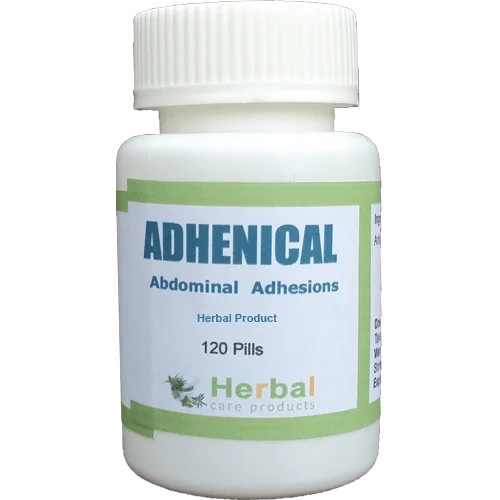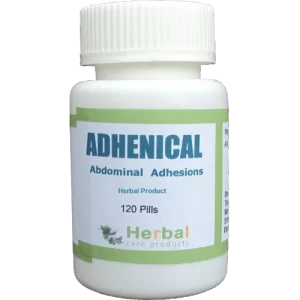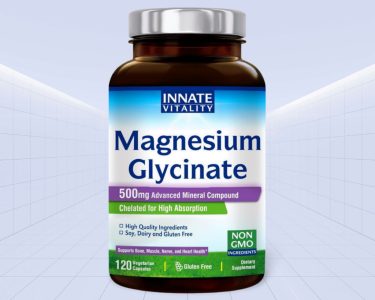Abdominal adhesions are a common yet often overlooked medical issue that can cause significant discomfort and complications. These internal scar tissues form as a result of surgeries, infections, or inflammation within the abdominal cavity. In many cases, adhesions can lead to pain, bowel obstructions, and limited organ mobility, affecting quality of life. Although traditional treatment options primarily involve surgical intervention, Adhenical, a natural herbal supplement, offers an alternative approach. The benefits of Adhenical, how it works, and its potential to support individuals managing abdominal adhesions.
Abdominal Adhesions
Adhesions occur when bands of fibrous scar tissue develop between organs or tissues, causing them to stick together. These bands may form after any form of trauma to the abdominal cavity, such as surgery, infection, or inflammation. While many adhesions remain asymptomatic, some people experience complications, including:
- Chronic abdominal pain
- Bowel obstructions
- Digestive discomfort
- Fertility issues in women, especially when adhesions form around reproductive organs
Symptoms of Abdominal Adhesions
Not everyone with abdominal adhesions experiences symptoms. In fact, many people may be unaware they have them unless they cause complications. However, for those who do experience symptoms, they may include:
- Chronic Abdominal Pain: Adhesions can restrict organ movement, causing pain during normal bodily functions.
- Digestive Issues: Some individuals may experience bloating, nausea, constipation, or other gastrointestinal discomfort.
- Bowel Obstruction: Severe adhesions can cause a blockage in the intestines, leading to cramping, vomiting, and an inability to pass stool or gas. This is a medical emergency and often requires immediate attention.
Diagnosis of Abdominal Adhesions
Diagnosing abdominal adhesions can be challenging, as they are not visible on standard imaging tests like X-rays or ultrasounds. Instead, a doctor may consider symptoms and medical history, especially if the individual has had previous abdominal surgeries or infections. In some cases, exploratory surgery (such as laparoscopy) may be performed to confirm the presence and location of adhesions.
Treatment Options for Abdominal Adhesions
The treatment approach depends on the severity of symptoms and whether complications like bowel obstruction are present:
- Non-Surgical Management: Many people with abdominal adhesions do not need treatment, especially if they are not causing symptoms. Pain management and LifeStyle modifications, such as dietary changes to reduce digestive discomfort, may be helpful.
- Laparoscopic Surgery: For those with severe symptoms or complications, surgery may be necessary to separate adhesions. Laparoscopy, a minimally invasive procedure, is often preferred because it reduces the risk of forming additional adhesions compared to open surgery. However, surgery carries a risk of new adhesions forming.
- Preventive Measures During Surgery: When abdominal surgery is necessary, certain techniques, such as using adhesion barriers (thin sheets or liquids placed between organs), can help minimize the risk of new adhesions forming.
- Herbal Supplements: Some individuals may explore natural approaches, such as Best Herbal Supplements Products like Adhenical, designed to support tissue healing and reduce inflammation. These supplements often contain ingredients like turmeric, Boswellia, and ginger, known for their anti-inflammatory and antioxidant properties. While herbal supplements cannot remove adhesions, they may help manage symptoms in some cases.
The Natural Solution: Adhenical
Adhenical is a herbal supplement designed to support individuals dealing with abdominal adhesions. This supplement incorporates a blend of natural ingredients known for their anti-inflammatory, antioxidant, and tissue-healing properties, which may help prevent adhesion formation and alleviate discomfort associated with existing adhesions.
Key Ingredients in Adhenical
The formulation of Adhenical includes herbs that have traditionally been used in herbal medicine to support healing, reduce inflammation, and improve tissue flexibility. Some of the key ingredients often found in herbal supplements like Adhenical may include:
- Turmeric (Curcuma longa) – Known for its powerful anti-inflammatory and antioxidant properties, turmeric contains curcumin, which has been shown to reduce inflammation and promote tissue healing. Curcumin may also help manage pain related to abdominal adhesions.
- Boswellia (Boswellia serrata) – Also known as Indian frankincense, Boswellia is recognized for its anti-inflammatory effects, which may help reduce adhesion formation. It is particularly beneficial in conditions involving chronic inflammation and pain.
- Ginger (Zingiber officinale) – This root is widely known for its digestive and anti-inflammatory properties. Ginger may help in alleviating pain and improving digestive discomfort often associated with abdominal adhesions.
- Gotu Kola (Centella asiatica) – This herb is valued for its role in tissue healing and repair. Gotu Kola contains compounds that promote collagen production and improve connective tissue health, potentially reducing the risk of adhesions.
- Licorice Root (Glycyrrhiza glabra) – With its anti-inflammatory and immune-modulating properties, licorice root can help manage inflammation within the abdominal cavity and support overall healing.
How Adhenical Works to Support Abdominal Adhesion Management
The blend of herbs in Adhenical may work together to address various aspects of abdominal adhesion formation and symptoms. Here’s how:
- Reducing Inflammation: Chronic inflammation is a primary factor in adhesion formation. Adhenical’s anti-inflammatory ingredients help address this root cause, potentially reducing the chances of new adhesions forming or existing ones becoming problematic.
- Improving Tissue Flexibility: Certain ingredients in Adhenical, such as Gotu Kola, are known to improve tissue elasticity and flexibility, which may help in preventing tissues from sticking together.
- Supporting Pain Management: Herbs like turmeric and ginger have natural analgesic properties that may help alleviate pain associated with Natural Treatment for Abdominal Adhesions.
- Aiding Digestion: Ginger and other digestive-supporting herbs in Adhenical can help alleviate bloating, nausea, and discomfort, often experienced by those with abdominal adhesions.
Suggested Usage and Safety Considerations
Adhenical should be taken as directed by a healthcare provider or as indicated on the supplement packaging. As with any supplement, it’s essential to consult a healthcare professional before beginning Adhenical, especially for individuals who are pregnant, breastfeeding, or currently taking medication.
While Adhenical provides a natural alternative to help manage abdominal adhesions, it is not a substitute for professional medical treatment. Severe cases of abdominal adhesions, particularly those causing bowel obstruction, may still require surgical intervention.
Potential Benefits of Adhenical for Abdominal Adhesions
- Natural Support for Inflammation: With its powerful blend of anti-inflammatory herbs, Adhenical may provide a natural solution to help manage chronic inflammation associated with abdominal adhesions.
- Promotes Digestive Health: The digestive-supporting ingredients in Adhenical can alleviate discomfort, potentially improving the quality of life for individuals with adhesions.
- Improves Quality of Life: By offering pain relief and promoting overall healing, Adhenical could help individuals maintain their daily activities and improve their well-being.
Final Thoughts
Adhenical represents a promising approach for those dealing with abdominal adhesions who seek natural alternatives to support their health. While it does not replace the need for medical intervention in severe cases, this herbal supplement may serve as a complementary approach to managing symptoms, reducing inflammation, and enhancing overall comfort. For individuals managing abdominal adhesions, Adhenical offers a natural path to support healing and potentially minimize the impact of this challenging condition on daily life.





